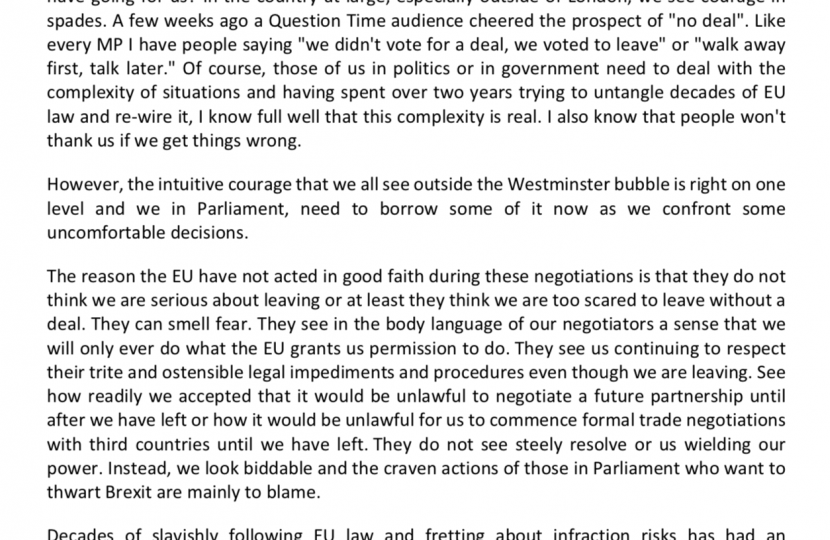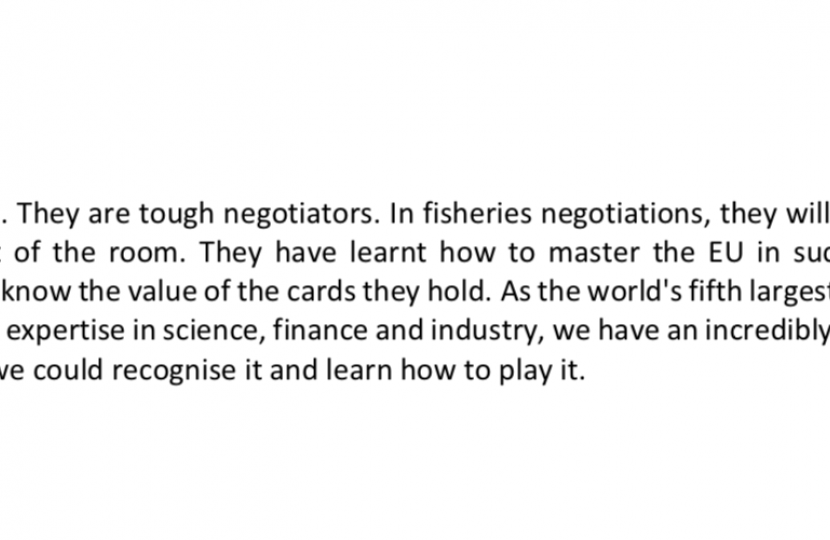Writing in today's Daily Telegraph George Eustice called for parliament to have the courage to walk out of negotiations and leave the EU on time. Below is the text of the article:
Greenland is not the world's fifth largest economy, nor a member of the G7, nor home to the financial capital of the world. However, they did vote to leave the EU in 1982, they did respect the result of that referendum and they did conclude a withdrawal agreement within two years and then they left.
In 1990 Lithuania declared its independence from the Soviet Union. There was no deal and no agreement it was even allowed to leave. Its leaders didn't know whether Russian tanks would arrive or not. It took real courage. There was an attempted blockade that folded after a couple of months, there were some skirmishes and tensions but the other Baltic states followed suit and they never looked back.
Why are we finding it so hard to summon the confidence to leave the EU with everything we have going for us? In the country at large, especially outside of London, we see courage in spades. A few weeks ago a Question Time audience cheered the prospect of "no deal". Like every MP I have people saying "we didn't vote for a deal, we voted to leave" or "walk away first, talk later." Of course, those of us in politics or in government need to deal with the complexity of situations and having spent over two years trying to untangle decades of EU law and re-wire it, I know full well that this complexity is real. I also know that people won't thank us if we get things wrong.
However, the intuitive courage that we all see outside the Westminster bubble is right on one level and we in Parliament, need to borrow some of it now as we confront some uncomfortable decisions.
The reason the EU have not acted in good faith during these negotiations is that they do not think we are serious about leaving or at least they think we are too scared to leave without a deal. They can smell fear. They see in the body language of our negotiators a sense that we will only ever do what the EU grants us permission to do. They see us continuing to respect their trite and ostensible legal impediments and procedures even though we are leaving. See how readily we accepted that it would be unlawful to negotiate a future partnership until after we have left or how it would be unlawful for us to commence formal trade negotiations with third countries until we have left. They do not see steely resolve or us wielding our power. Instead, we look biddable and the craven actions of those in Parliament who want to thwart Brexit are mainly to blame.
Decades of slavishly following EU law and fretting about infraction risks has had an understandable impact on the Whitehall machine. The culture of perpetual legal jeopardy that exists has undermined our self-confidence. We can change this very quickly if we put our mind to it and in many quarters it is already changing. In Defra where I was a Minister, it was extraordinary to see how rapidly officials developed a highly intricate understanding of every conceivable element of trade policy from a standing start and just how much talent we have when we put our minds to it. On fisheries, our officials already see how Norway and other independent countries act and they are raring to go. On agriculture, a coherent programme for a decade of reform devised and encompassed in a Bill without any need to plead with the EU for permission to think.
We can also learn more than we will admit from countries like Norway. Unlike us, they never did cave in and accept the need to join the EU. They valued their independence and kept it above all else. They are tough negotiators. In fisheries negotiations, they will literally get up and walk out of the room. They have learnt how to master the EU in such negotiations because they know the value of the cards they hold. As the world's fifth largest economy with world leading expertise in science, finance and industry, we have an incredibly strong hand of cards if only we could recognise it and learn how to play it.



